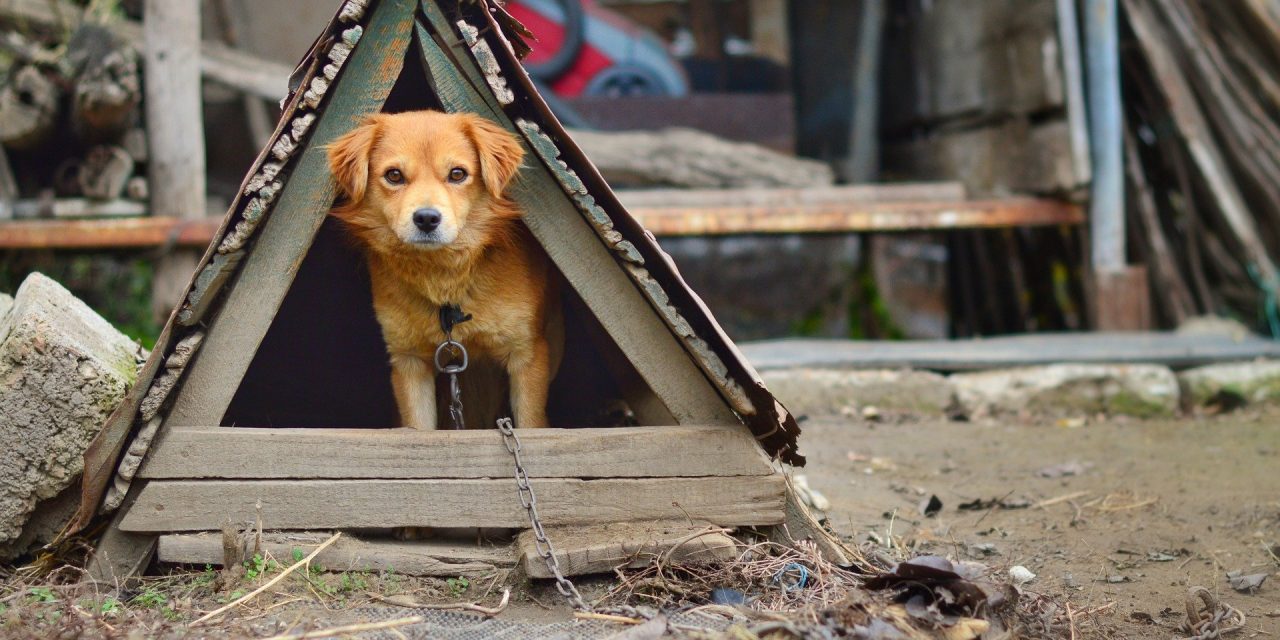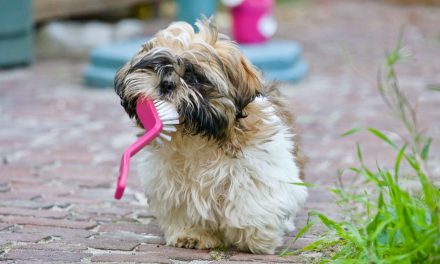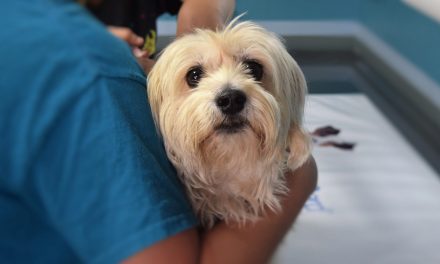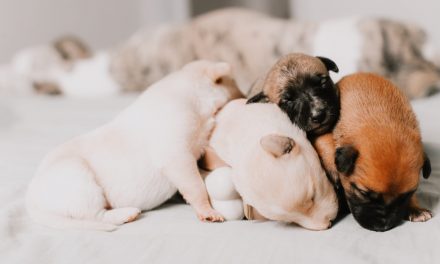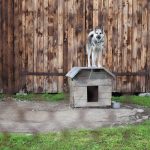- Home
- /
- Blog posts
- /
- Could You Spot A...
When choosing to buy a puppy, most people have never thought about whether they are buying from a puppy farm. Puppy farmers don’t exactly advertise the fact they are farming puppies, and most of the time, the front they put up is enough to fool any potential buyer.
Could you spot a puppy farm? In this article, we will help you buy from a reputable breeder and not put your money into the hands of a puppy farmer.
What to expect from our article
What is a puppy farmer?
A puppy farmer is someone who breeds animals purely to earn as much money as they can. A puppy farmer does not care about the conditions their dogs and puppies are kept in; they will spend the absolute minimum on taking care of their animals. Most of the time, they are kept in deplorable conditions with little to no human interaction. All of their animals will be crammed into outbuildings and not taken care of correctly. They also won’t have been taken to the vet at any point.
How to spot a puppy farm
The first red flag when choosing a puppy is the advert that is selling them. You can tell a lot just by doing a little extra research. The first thing to look at is the photograph;
- Has the photograph been taken outside?
- Are the puppies behind a wire gate or fence in the photograph?
- What does the bedding look like?
- Do they look clean and well cared for?
Is the photograph taken outside?
This is not unusual, but it may be a telling sign that the breeder keeps them in an outbuilding. Puppies kept outside will not be raised correctly. Puppies should be raised inside to gain knowledge of what a family home is like. Exposing puppies to sights, sounds and smells all help to raise a balanced puppy. If your puppy hasn’t been exposed to any of these things, they will likely be scared or nervous.
If the puppy is being raised outside, they will not be getting valuable human interactions; all puppies need to be socialised with people if they are intended to be kept as a family pet. Granted, not every breeder will have children, so they may not be exposed to this type of environment, but they should be around people the majority of the time. Socialisation is essential when raising healthy puppies.
Are the puppies photographed behind a wire gate or fence?
This is another sign that the puppies are being kept in an outbuilding. They will not be engaging in essential socialisation and stimulation from family members or learning about sights, sounds and smells. Remember, a dog can smell you at a great distance, maybe even before they see or hear you. If the puppy is not raised in this environment, it is likely to be scared and timid when it is introduced to this kind of stimulation. We want to purchase a healthy, happy puppy who is well balanced and confident.
What does the bedding look like?
When puppies are kept in an outbuilding, there will usually be hay or straw for them to sleep on; some won’t even provide any bedding so they can cut down on costs. Look closer at the images provided to see what they are providing their dogs and puppies to sleep on.
Do they look clean and well cared for?
This is one of the biggest red flags to look out for; if the puppies or their surroundings look dirty and uncared, you should be very wary about purchasing a puppy from this seller. If the puppies look dirty, have weepy eyes, mats in their fur, you can bet a puppy farmer has bred them. As mentioned before, puppy farmers are breeding purely for money, and they do not care about the conditions of their dogs or their puppies, and you can almost guarantee a vet won’t have seen them.
The listing text
The text on a puppy advert can be very telling if you know what to look for; to someone who doesn’t know what a puppy farmer looks like, they wouldn’t even question what the seller has written, but you can pick it out immediately if you look closer.
- Delivery
- Phone number
- Name of the seller
- Location
Delivery
Do they offer to deliver the puppy? No ethical breeder will offer to deliver a puppy; they will want you to visit them to see the puppy before buying it. If they don’t want you to visit or make excuses, you should avoid buying from them.
Phone number
Does the phone number appear in lots of other listings selling other types of puppies? A genuine breeder will not be breeding lots of different breeds of puppies; they will only ever have one type, maybe two. If they have more than this, it is usually a sign that you are looking at a puppy farmer.
Name of the seller
Are there lots of adverts for identical puppies but with different names attached to them? There is no reason they would use a different name if they are an honest breeder. If you see this, you should avoid buying from this seller.
Location
Does the location change on other listings? Like the name, there is no reason that they would change the location if they were a genuine breeder. Some sellers are not breeding the puppies themselves. The location on the advert changes because they are selling puppies farmed in different countries and shipping them in illegally.
What next
Ok, so you have gotten past the advert, and everything looks ok; what next?
You will want to ask lots of questions; here is a list of questions to ask the breeder when enquiring about a puppy.
Did they breed the puppy themselves?
You should meet all of the puppies to help you choose which puppy will best suit you and your family. You want a cautious but curious puppy; avoid overconfident, boisterous puppies as these may be headstrong and difficult to manage when they get older. Don’t go for the runt of the litter either they may seem quiet and shy, but they may turn into fearful dogs as they grow.
Will you be able to see the mum?
Never ever buy a puppy if you cannot see the mum first, the puppy should never be separated from the mum when you go to visit, and if the mum is not on the property or they make excuses why you can’t see her, then avoid buying a puppy.
How old is the mother, and how many litters has she had?
The mother must not have been mated before 12 months of age; ideally, you should wait until she is around two years old. She must be no older than eight years old and should not have had more than four litters in her lifetime – including this litter.
Was the birth natural or caesarean? If a c-section, how many times have they had a c-section?
A dog should not have more than two c-sections any more than that is negligent; c-sections put the mum at risk. If the breeder doesn’t care about the risks and continues to breed from her, he is doing it for the money.
Can you see the father?
It is not always possible to see the father because the breeder might have used a stud to mate with. The breeder should still be able to give you all the information you require, including health information.
Can you see where they were bred/living?
You should always be allowed to see where they were bred and where they are being kept to ensure they have been well looked after.
Have the parents been health checked?
Any health problems the parents have are likely going to pass onto your new puppy. Health checks must be carried out on the parents to know if your puppy is likely to inherit them. The minimum health tests carried out should be on the hips, elbows and eyes, and they should be able to provide evidence of this.
What is the puppy’s inbreeding coefficient?
Highly inbred puppies are more at risk of inheriting genetic diseases from the parents. Learn more about inbreeding coefficients here.
Will the puppies be vaccinated and wormed?
Puppies are usually wormed at 2, 5 and 8 weeks of age. In an ideal world, your puppy should be vaccinated before you take them home; however, most breeders may choose to do the first or may not to do any.
Are the puppies microchipped?
It is a legal requirement that the breeder microchips the puppy before it is given to the new owners, do not accept any excuses for why they haven’t been microchipped.
Is there a contract, and will there be any restrictions?
Some breeders like to put restrictions on the papers to stop you from breeding the puppy; there may also be restrictions about leaving the country.
Do I have to pay a deposit?
Most breeders will require a deposit to secure the puppy, with the rest paid in full at the time of collection.
Will you be able to give help and advice afterwards?
Reputable breeders will be more than happy to offer help and advice after taking your puppy home; they may also want to stay in touch and receive updates on how the puppy is doing.
Can the puppy be returned if there are any problems?
Most reputable breeders will always offer to take the puppy back if you can no longer keep it. If they don’t, you may want to enquire why.
At what age can I take the puppy home?
A puppy should never leave the mother before it is eight weeks old. Some breeders like to keep the puppies until 12 weeks.
This is super important when buying a puppy; they should be introduced to people, including children, and should be used to the sights and sounds of an average household. It is also essential to introduce them to other dogs, cats and small animals.
If you are happy with all of the answers the breeder gives you, you can arrange to visit the puppies; remember to ask lots more questions to ensure that the puppy is right for you.
Be wary if the breeder doesn’t answer all of your questions or cannot provide evidence to back it up. If you suspect that your puppy has come from a puppy farm, walk away from the purchase, and please contact the relevant authorities and report them so they can be investigated.

